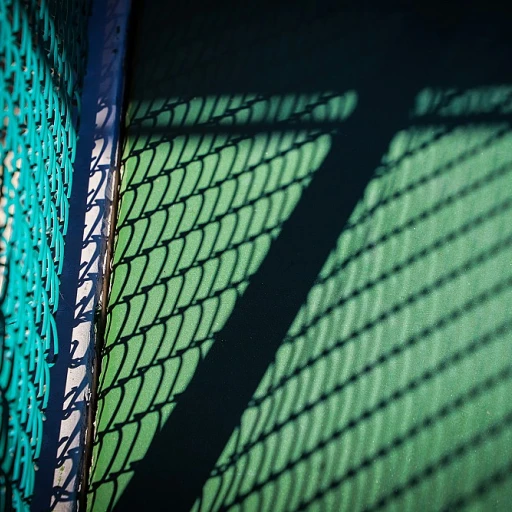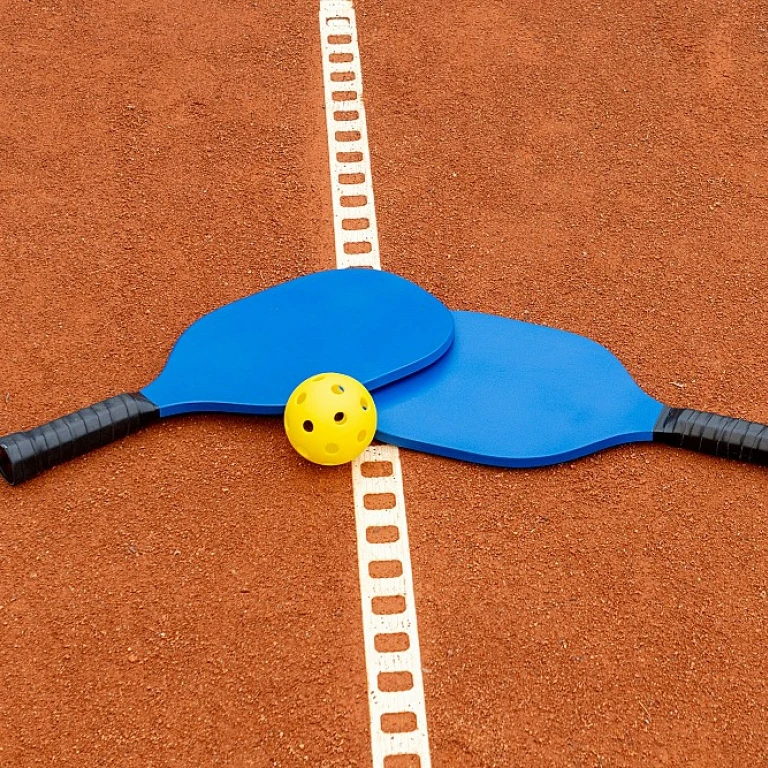The Popularity Surge of Pickleball in Spain
Spain's Love Affair with Pickleball
Pickleball has rapidly gained popularity in Spain, attracting players from all walks of life and making its mark as a prominent sport. This sport, which uniquely blends elements of tennis, badminton, and ping-pong, has captivated the interest of both locals and travelers alike. As enthusiasts travel to different regions, such as Barcelona, they often seek out opportunities to play, combining leisure and sport during a trip.
The international pickleball community has observed a significant increase in tournaments taking root across Spain's scenic locations. The allure of playing on dedicated pickleball courts amidst the backdrop of Spain's cultural richness enhances the overall experience, drawing visitors who wish to enjoy their time both on and off the court. Many hotels now offer various packages, including free time for guests to explore and play pickleball, making it a sought-after travel itinerary segment.
As more hotels in Spain integrate pickleball into their service offerings, the number of courts available continues to rise. From pickleball sessions in hotel facilities to open play community events, pickleball in Spain is becoming increasingly accessible. A typical day might start with a delicious day breakfast at your hotel before heading to play pickleball, accommodating both single occupancy guests and teams.
For those planning a pickleball-centric trip, Spain offers an attractive blend of luxury, leisure, and sport. Whether you're just enjoying a quick play session or embarking on a broader pickleball tour, the country's warm hospitality and vibrant culture promise an unforgettable experience. For more insights on related opportunities, explore this
sweet connection to delve deeper into the world of pickleball.
Cultural Adaptations in Spanish Pickleball
Fusion of Traditions: Spanish Touch to Pickleball
The sport of pickleball, originating from the United States, has rapidly garnered attention across various regions of Spain. This enthusiasm has brought a unique Spanish flair to the game. Local communities have embraced the sport's blend of tennis, padel, and badminton dynamics, adding their vibrant, social culture to the mix.
As the popularity of pickleball increases, amenities like pickleball courts in places such as Barcelona have multiplied, drawing in both travelers and locals. Tourists on a trip keenly look for a hotel with facilities to enjoy a day of pickleball play, often planning around pickleball sessions intertwined with their other travel activities. Many Spanish pickleball enthusiasts savor such moments, gathering not just at courts but also enjoying leisurely day breakfasts together post-play.
The interplay of cultural activities alongside the international appeal of pickleball has fostered a robust sense of community. It is not uncommon to see a diverse mix of players, from seasoned locals to international visitors, participating in open play sessions. After a competitive day on the courts, players might head to a Spain hotel, check-in, and reflect on the day at a local restaurant or a known breakfast hotel spot.
The expansion of Spanish pickleball is marked by tournaments that attract global talent. An event often begins with registration at an airport, travel plans mapped out for participants arriving for both leisure and competition. Seeing a mix of the local flavor fused with international elements during such pickleball tours has cemented Spain as a key destination in the sport's global excursion.
For a deeper insight into how pickleball has influenced local traditions and the
rise of notable players, Spain's adaptation is a testament to the evolving world of this energetic sport.
Infrastructure and Facilities for Pickleball in Spain
Expanding Pickleball Infrastructures
As pickleball rapidly establishes itself in Spain, a crucial focal point is the development and availability of adequate infrastructures. The sport's growing popularity has seen an increase in demand for dedicated pickleball courts and facilities. This demand is particularly evident in Spanish urban centers such as Barcelona and other tourist hotspots, where international players seek to enjoy the sport during their travels.
Currently, many of the existing pickleball courts in Spain are part of multi-sport complexes. Facilities that previously catered primarily to tennis and padel have started to accommodate the influx of pickleball enthusiasts. This adaptation involves converting portions of these complexes to include playable pickleball courts, ensuring that players have access to areas where they can fully enhance their
pickleball experience with sport court paint.
For travelers on a pickleball tour, the proximity of these courts to popular Spain hotels, airports, and other amenities provides a seamless experience. Throughout the day, pickleball sessions are often crafted to pair with leisure opportunities. As players wind down from a day of open play, they can return to their hotels where amenities such as breakfast and free time offer relaxation between matches.
While individual courts are cropping up, the need for a cohesive infrastructure strategy remains. The coordination of local pickleball associations will be vital in addressing the burgeoning interest and ensuring that the sport's expansion is well-supported. This involves not only the creation of new courts but also maintaining quality standards to ensure a consistent experience for enthusiasts across the nation.
Challenges Faced by Pickleball Enthusiasts in Spain
Navigating the Hurdles in Spanish Pickleball
The burgeoning popularity of pickleball in Spain has inevitably given rise to a unique set of challenges that enthusiasts face. While the sport is growing rapidly, it still confronts some hurdles that are common to emerging sports in a new cultural landscape. Here's a closer look at the obstacles that Spanish pickleball players often encounter:
- Availability of Facilities: Although the number of pickleball courts is increasing, finding accessible courts equipped for pickleball can sometimes be a challenge, particularly in dense urban centers like Barcelona. Local clubs and associations are working hard to provide more options, yet the demand often outpaces availability.
- Cultural Differences: Adapting to the sport within the Spanish cultural context can present its own challenges. While sports like tennis and padel are well-established, pickleball has yet to carve out its niche. As a result, some may find it difficult to break into existing sporting communities.
- Travel and Accommodation Coordination: For international players visiting Spain, coordination between travel plans and playing schedules is another challenge. Finding a suitable Spain hotel, arranging transportation from the airport to the courts, and synchronizing these logistics with pickleball sessions can require meticulous planning to ensure an enjoyable experience.
- Limited Resources and Awareness: Compared to countries like the United States, where pickleball has flourished, Spain’s pickleball ecosystem is still developing. This means limited access to resources like high-quality equipment, training programs, and organized pickleball tournaments.
However, these challenges are not insurmountable. With a burgeoning community and increasing institutional support, players can look forward to more streamlined experiences in the future. For now, pickleball enthusiasts should focus on maximizing their enjoyment of the sport in every session of Spanish pickleball they get to experience.
Community and Social Aspects of Pickleball in Spain
Building Bonds Through the Game
The social aspect of pickleball is one of the most rewarding features of the sport in Spain. As this exhilarating game rises in popularity, it's not just limited to a competitive environment; it fosters a strong sense of community and camaraderie among players. Shared experiences, like open play sessions, allow participants of all levels to connect and enjoy the game together. These sessions are perfect for those on a trip looking to immerse themselves in the local culture.
The welcoming nature of the Spanish pickleball community makes it an ideal way to meet new people and forge lasting friendships. Many players find themselves frequenting the same pickleball courts, leading to regular gatherings both on and off the court. Some choose to extend their day by enjoying a day breakfast at local eateries or by socializing over a drink at the hotel bar after a thrilling day of play.
Players often end their pickleball session encouraged by the camaraderie and sportsmanship shared among enthusiasts. Events organized by the local pickleball association offer additional opportunities for community engagement. These events are similar in spirit to those held in the United States, offering both competitive and casual play.
For those visiting from abroad, such as places like Barcelona, the time spent on the courts can provide an authentic glimpse into Spanish life. Whether you're staying at a spain hotel or exploring different facets of the city, playing pickleball can be an enriching experience, adding to your travel itinerary. In fact, some trips might even include organized tours or events coordinated with the help of international pickleball teams to ensure visitors have both a competitive and enjoyable experience.
Despite some challenges, like adapting to cultural differences in play styles or finding easily accessible courts near your airport, the experience of Spanish pickleball is both gratifying and memorable. Whether you're in Spain for a single occupancy stay or part of a larger group, the connections formed through this vibrant sport will enhance your travel experience, leaving you with cherished memories of your time in Spain.
Future Prospects for Pickleball in Spain
Envisioning the Path Forward for Spanish Pickleball
The future of pickleball in Spain looks promising, given the sport's growing popularity and the increasing number of pickleball courts across the country. With its roots in the United States, pickleball has found a receptive audience among sports enthusiasts in Spain, creating a vibrant community eager to broaden its horizons.
Improvements in infrastructure, such as the development of new pickleball facilities and the integration of pickleball courts in more hotels, can further cater to both locals and international visitors. For those planning a pickleball-focused trip, choosing a Spain hotel that offers day pickleball sessions or open play opportunities will enhance their experience. Many establishments even provide a hearty breakfast hotel service to keep players energized for their games throughout the day.
The Spanish pickleball community has already demonstrated a keen ability to adapt culturally, embracing the sport while infusing it with local flavors. While there are logistical and organizational challenges, particularly in creating uniform regulations and fostering competition, enthusiasm is high, which suggests that these hurdles will be increasingly navigable.
From an international perspective, there is considerable potential for Spain to become a sought-after destination for traveling pickleball enthusiasts, with organized pickleball tours that include visits to iconic cities like Barcelona. With the right developments, players and teams might soon find themselves enjoying more free time to explore the cities between scheduled pickleball sessions, offering a balance of sport and sightseeing.
As the infrastructure and community support for pickleball continue to develop, Spanish pickleball will undoubtedly become a staple in both local sporting culture and international travel itineraries, ensuring unforgettable experiences for all who participate or spectate.

